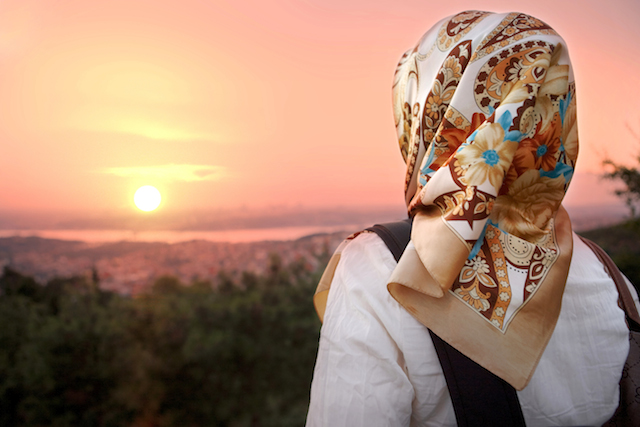
As Christians, violence like we saw in Paris two weeks ago should not surprise us—though often it seems to. It should certainly sadden us—and what’s more, it should move us to action with the gospel.
In my previous blog post, I argued for the need to not turn our back on the refugees coming to our door. I think the core of what makes us Christian is that we live a new ethic, a Kingdom ethic that says we no longer belong to this word, but that our citizenship lies in heaven (Philippians 3 v 20)! I like the two verses that come before this statement from Paul: “For, as I have often told you before and now tell you again even with tears, many live as enemies of the cross of Christ. Their destiny is destruction, their god is their stomach, and their glory is in their shame. Their mind is set on earthly things.” With tears, Paul writes that they walk as enemies of God.
All of this is powerful when we start to think about sharing the gospel with our Muslim neighbor—both those who have come to the country as refugees, and those who are longer established here.
1. We start with tears
Like Paul, we start with tears, because our neighbor’s end is destruction.
It’s impossible to say it in a politically correct way, but whose without Christ face an eternity in hell. There are consequences to sin, and either Jesus pays them for us on the cross or we pay for them ourselves. If this fact isn’t clear in our minds then we might as well not go on with this article. This truth gives us an urgency to share with all those who are without Christ—not least our Muslim neighbor.
We pray for them with tears of gratitude for what God has done in our lives, tears of sorrow for the judgment they face and tears of passion asking God to save their souls.
2. We provide peace
Early Islamic jurists devised two powerful terms to describe nations and geographical areas: Dar al-Islam (meaning House of Islam, or House of Peace), and Dar al-Harab (meaning House of War). According to early Muslim scholars, the requirements for a country to be part of Dar al-Islam are: Muslims must be able to enjoy peace and security within this country; the country should be ruled by a Muslim government; it has common frontiers with some Muslim countries. I share this because as we welcome refugees from Islamic countries to the west, in their minds they are coming from Dar al-Islam to the Dar al-Harb—they come from what they call the House of Peace and enter the House of War.
If we treat refugees and immigrants as the enemy when they arrive, if we ask them to leave, if we treat them poorly, if we do not love them as Christ loved us, then we reinforce the idea that they really are in the House of War! However, if we welcome them, love them, befriend them and provide them a place of true peace then we destroy this idea and point to the House of Peace that Jesus spoke of: “Peace I leave with you; my peace I give to you. I do not give to you as the world gives. Do not let your hearts be troubled and do not be afraid.” (John 14 v 27).
As believers, we strive to have relationships with those outside the gospel so they can experience true peace through Jesus Christ.
3. We speak truth boldy
We do not give in to the media’s scaremongering, or to political correctness—we lovingly share the truth of the gospel with our Muslim friends.
This sharing happens with our lives and our words. We live the gospel by welcoming them into our homes, neighborhoods and churches. Let them know there is a place of peace waiting for them. We must also not be afraid to share the truth that God saves through Jesus Christ.
We must not be afraid to share the truth that God saves through Jesus Christ.
So pray for Muslims in Jesus name, tell them how Jesus has changed your life, and make sure they know that Jesus can change their lives as well. The worldview of devout Muslims demands that we speak of God in all we do—take advantage of that and speak of God, speak to God, and show them Jesus.
4. We call for change
Do not be afraid to talk to your friend about the state of the world. Two weeks on, and the situation in Paris still comes to mind. Ask your Muslim friend questions: What do they think? Is it ever okay to kill innocent people in Paris, Iraq, or Syria? Don’t be afraid to ask refugee friends about why they are here, and what they had to escape in their home country. Be prepared to hear of heartache, death, violence, and destruction. They are not in your country because they want to be there— brace yourself to hear first hand of the worst mankind has to offer.
What are we to make of such a messed up world? Remember Jesus’ words, “The thief comes only to steal and kill and destroy . . .” When we look at the Middle East, we see the Enemy destroying lives, families and cultures. But Jesus goes on: “I have come that they may have life and have it abundantly” (John 10 v 10-11). What a wonderful offer to all who are weary of human evil! Point your friends to this good news—in Jesus there is life!
Engage your Muslim neighbor—they live next door for a reason!
Now you've read this post, let us know what you think. Join the conversation and comment below. You can also like us on Facebook, follow us on Twitter, and subscribe to our YouTube Channel.